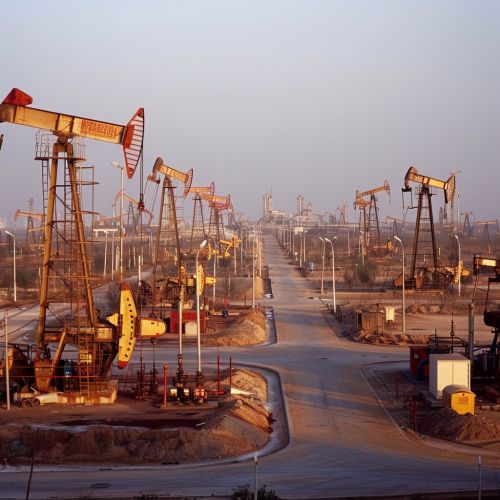Cartel
Overview
A Cartel is a group of independent market participants who collude with each other in order to improve their profits and maintain control over the market. The term is often used in the context of the global economy, where such organizations are known to exist in industries such as oil, diamonds, and drugs. Cartels are typically characterized by a high degree of organization and coordination among members, with strict rules and regulations to ensure that all members adhere to the agreed-upon terms.


History
The concept of a cartel dates back to the 19th century, when businesses in various industries began to realize the benefits of cooperation over competition. The first recorded instance of a cartel was in the German coal industry in the 1870s, where producers agreed to limit production in order to maintain high prices. This trend quickly spread to other industries and countries, leading to the formation of numerous cartels throughout the late 19th and early 20th centuries.
Types of Cartels
There are several different types of cartels, each with its own unique characteristics and methods of operation. These include:
Price-Fixing Cartels
Price-fixing cartels are perhaps the most common type of cartel, and involve members agreeing to set their prices at a certain level in order to prevent competition and maintain high profits. This is often done through the use of a central pricing committee, which determines the prices that all members must adhere to.
Output-Restricting Cartels
Output-restricting cartels operate by limiting the amount of goods or services that each member can produce. This is done in order to prevent oversupply and maintain high prices. Members of these cartels often use quotas to ensure that each member produces only a certain amount of the good or service in question.
Market-Sharing Cartels
Market-sharing cartels involve members dividing up the market among themselves, with each member being assigned a certain territory or customer base. This allows members to avoid competition with each other, while still maintaining a high level of control over the market.
Economic Impact of Cartels
The economic impact of cartels is a topic of much debate among economists. On one hand, cartels can be seen as beneficial in that they can help to stabilize markets and prevent price volatility. On the other hand, they can also lead to higher prices for consumers and reduced economic efficiency.
Legal Status and Regulation
The legal status of cartels varies greatly from country to country. In some jurisdictions, such as the United States and the European Union, cartels are illegal and subject to severe penalties. In others, such as Saudi Arabia and Russia, they are tolerated or even encouraged.
